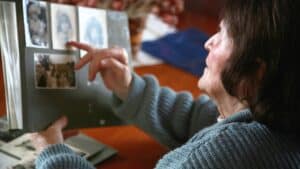
Some years ago, at the age of 61, I quit my job, rented out my flat and flew to Australia to research my family history.
It was not an easy business. In the days before Airbnb and other similar organisations made letting so much more flexible, agents insisted on a minimum of a year’s lease, with a six-month break clause, gas safety checks, inventories, fire-proofing and so on.
On my part, there was the cancelling of utilities, council tax, water and phone and broadband contracts. I had to inform – and pay – my insurance and mortgage companies. And, of course, there was the packing up and storing of all my personal stuff. (Fortunately, I have a loft.)
I Don’t Regard Myself as a Particularly Adventurous Person
I’m a cautious soul by nature, and I like a certain predictability in my life. However, throughout it all and whenever a hint of doubt crept in – particularly as to whether I would find tenants for my flat in the first place or whether I might end up homeless and penniless – I was spurred on by a quote I once came across from the writer Richard Price in The Paris Interviews:
‘Sometimes the fear of the unknown is not as great as the fear of things staying the way they are.’
It Had Been a Torrid Few Years
Three years earlier, I had separated from my husband of 28 years, not amicably. The kids had gone and there was the family house to be sold, which itself was a nightmare. Three sales fell through. In all it took 18 months to eventually sell the house and another six months for me to find, buy and move into my flat (I was a ‘first-time buyer’ in my 60s). And then what?
Once the dust had settled, and I had regained enough of my equilibrium to turn my attention to the future, it didn’t look that wonderful. I had a part-time job I no longer enjoyed. I was aware of the passing of the years and the dwindling opportunities available to someone of my age.
It Was Now or Never
My late mother was Australian, which makes me half-British, half-Australian. I had actually migrated to Australia in my 20s as part of the ‘Ten pound pom’ scheme, where the Australian government paid for people from overseas to come to live in their glorious country.
I was an actress then looking to further my career, which in itself was an odd thing to do. I spent three glorious years in the great south land before I returned to England, got married and had kids.
In all the time I spent in Australia in my youth I took no interest in my Australian ancestry, or how my maternal family came to be there in the first place. It was my aunt who first sparked my interest on one of my sporadic visits to Sydney in my later years.
She was the only one of three sisters who remained in Australia, and she spent her retirement years researching her family’s history there and in Britain, going back to the 16th century and beyond.
Our original Australian ancestress, a widow in her 50s with five children, had migrated to what was then New South Wales in 1801. This was barely 13 years after the First Fleet, travelling from England with around 1,000 convicts, first set foot in the new colony and planted the Union Jack on its soil.
It was not a country people chose to go to voluntarily. It was effectively a penal colony, there was very little infrastructure, the climate was foreign, and extreme, and hostile to British crops. The original arrivals had almost starved to death. No wonder they considered it the worst country in the world. (This ended up as the title of my first book.)
What a story that was! You couldn’t make it up. I had to know more, not just about my own family but about this terrible continent they ended up in, and not least why they chose to go there in the first place.
So: Was It a Good Decision?
You bet it was. I eventually found tenants for my flat five days before leaving. I had funds.
I also discovered a new passion which would keep me absorbed for a decade to come, and more. I was no longer consumed with guilt for unilaterally ending my marriage. I felt 10 years younger. I was ready to spend my third trimester exploring new territory.
This was the first of many trips to and from Australia. Thanks to Airbnb and Wimdu, the European equivalent, letting my flat became a whole lot easier and no longer involved having to cancel household contracts.
This adventure into writing about the past has led to several more books, fiction and non-fiction, and a new and invigorating passion for delving into the history of my country and the people who lived in it.
Let’s Have a Conversation:
Do you find your family history interesting? Enough to cross the globe to find out more? What fascinates you about the people who came before you? Would you say they have breathed passion into your own life after 60?





